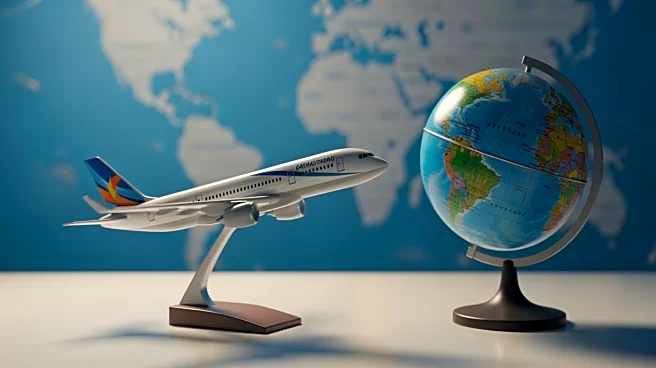What's Happening?
Icelandair CEO Bogi Nils Bogason has issued a warning regarding the impending strike by air traffic controllers, which is expected to cause significant disruptions beyond the current wage dispute. The
strike, organized by the Icelandic Air Traffic Controllers Association, is set to commence at 10 p.m. on Sunday and last until 3 a.m. on Monday, with further work stoppages anticipated in the following week. The controllers have been operating without a contract since the beginning of the year, with negotiations stalled over wage and pay development issues. The strike is primarily directed at Icelandair, but its repercussions are expected to extend to passengers, tourism operators, and exporters, all of whom are not directly involved in the dispute.
Why It's Important?
The strike poses a substantial threat to Iceland's economy and its reputation as a travel destination. A similar strike in 2023 resulted in significant financial losses for Icelandair, amounting to approximately ISK 700 million. The current strike could have even more severe economic consequences, with estimates suggesting a full day's halt in air traffic could cost the Icelandic economy around ISK 1.5 billion. The disruption risks damaging Iceland's image as a reliable travel destination and could undermine confidence in its air navigation services. Given that flights are Iceland's primary connection to the outside world, the impact of the strike could extend far beyond immediate financial losses, affecting the broader tourism and export sectors.
What's Next?
The continuation of the strike could lead to prolonged disruptions in air travel, affecting not only Icelandair but also the broader Icelandic economy. Stakeholders, including tourism operators and exporters, may push for a resolution to the wage dispute to mitigate further economic damage. The Icelandic government and relevant industry bodies may need to intervene to facilitate negotiations between the air traffic controllers and the Confederation of Icelandic Employers to prevent long-term harm to the country's travel and tourism sectors.








